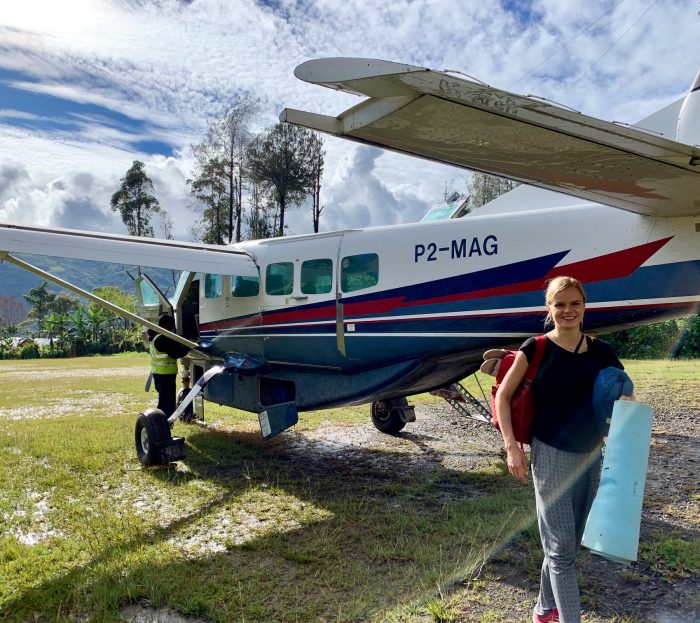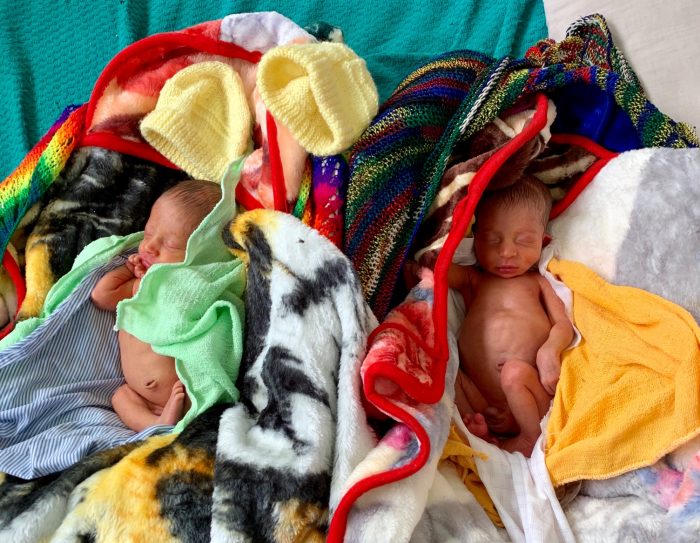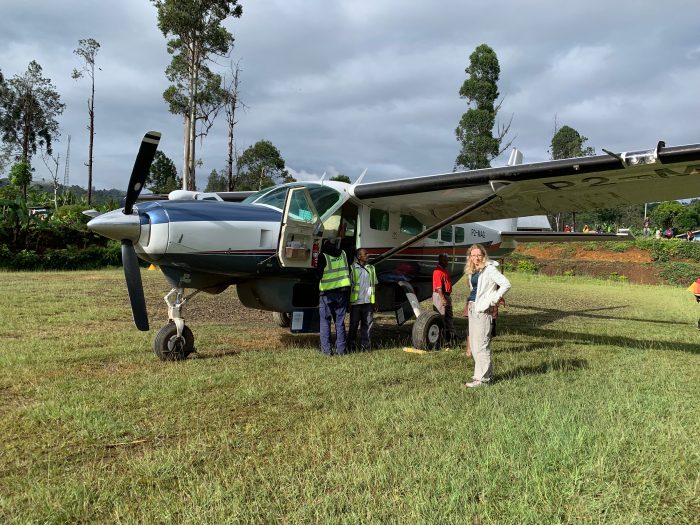MAF in Papua New Guinea through different eyes
Two German medical students spent their semester break volunteering at the Kompiam Hospital. They’ve had the privilege of flying with MAF to 2 remote villages for a clinic patrol with some team members from the hospital. This is there written account of their experience of rural clinics and flying MAF.
Medical Patrols to remote Villages in the Jungle
As medical students, we have to do internships during the semester breaks anyway, so we (Leni and Clara) thought to ourselves: Why not combine it with a little adventure?! Our idea: one month internship in the highlands of PNG!
The Kompiam District Hospital, which can use any amount of support, welcomed us with open arms. The Australian doctor, David Mills, has been there for 20 years and has established a lot during this time: a hospital in the middle of the jungle, offering inpatient care for about 50 patients and an additional two hours of consultations for outpatients with minor ailments on two afternoons per week. Despite their suffering and pain, the sick often walk for hours from the surrounding villages to Kompiam, to the “tall white doctor”, with the hope of alleviating their symptoms.
But what are patients doing in more remote and distant regions in PNG?
Thanks to MAF, even some of the tiny and remote villages in the PNG highlands have access to medical care.
Through cooperation with MAF, medical staff from the Kompiam Hospital, as well as medicines and equipment, regularly reach these jungle regions.
During our stay, we experienced two of these “patrols” of two days each. The Indian MAF pilot Satish picked us and our equipment up at Kompiam airstrip next to the hospital and, after a 20 minute flight (with stunning views over PNG’s jungle) lands safely in the village of Yenkisa.
The sound of the MAF Cessna Caravan’s engine announces that it is time for the people of the surrounding area to head for the runway and report their complaints to us. What we see most often there are malaria, pregnant women for monitoring, inflamed wounds, contraceptive questions, joint pain from hard physical labor, tuberculosis.
Seriously ill people can fly back to the hospital for further treatment with the MAF aircraft as an ambulance.
After two days of a huge variety of diagnoses, we get picked up by the German MAF pilot Mathias Glass and his Dutch copilot Piet and get safely flown back to Kompiam.
With us in the aircraft flies a highly pregnant woman, who will give birth to healthy twins the next day at the Kompiam District Hospital.
With many new impressions and some interesting experiences richer, we return to Kompiam and later to Germany to finish the last semesters of our medical studies.
Thank you MAF, for this experience! Your engagement and services in PNG are valuable as gold.
Magdalena (Leni) Bonleitner







